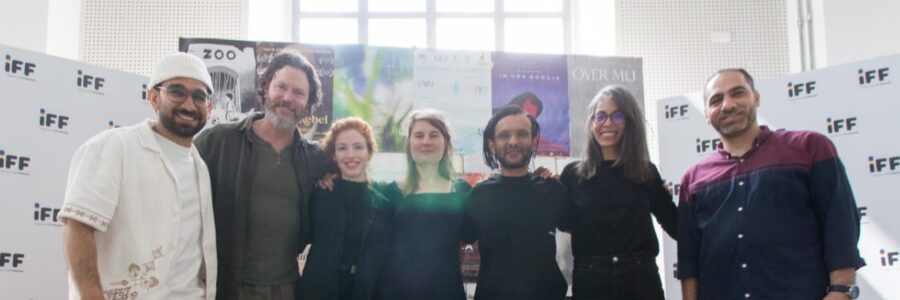
On 18 May 2024, a very special Migrantour walk took place in Bergamo! During the final day of the 18th edition of IFF – Integrazione Film Festival, international artists and directors had the opportunity to discover our territory and its intercultural reality through the itinerary ‘Ulysses’ Journey’, a symbolic route that allowed to explore multiculturally significant places.
IFF- Integrazione Film Festival, a project of Cooperativa Impresa Sociale Ruah, stands out for its ability to bring issues such as integration and the encounter between different cultures to the centre of the debate, using cinema as a tool to recount these dynamics. This year, from 14 to 18 May, the festival hosted filmmakers from all over the world (USA, Qatar, Croatia, France), presenting in and out of competition works exploring multiculturalism, such as Matteo Garrone’s multi-award-winning ‘Io Capitano’, which opened the festival in the presence of lead actors Seydou Sarr, Moustapha Fall and Diallo Amath Mamadou.
Among the winners of the 18th edition, the documentary ‘Scenes with My Father’ by Biserka Suran and the short film ‘La Voix des Autres’ by Fatima Kaci stood out for their ability to address integration issues in a touching and innovative way.
To conclude this edition of the festival, a walk called ‘Il Viaggio di Ulisse’ (Ulysses’ Journey) was organised, allowing festival guests and participants to explore Bergamo with new eyes. The walk touched upon places that are fundamental to the community, such as the Islamic Cultural Centre of Bergamo, the Church of the Sacred Heart of the Orthodox denomination, and the Galgario Dormitory, a place that welcomes men in social difficulty, offering concrete support to those in marginalised conditions.
This itinerary allowed participants to get to know the different cultural souls of the city and created a bridge between the themes dealt with in the films and the everyday reality experienced in Bergamo, allowing a direct confrontation with stories of life and migration that often remain invisible.
